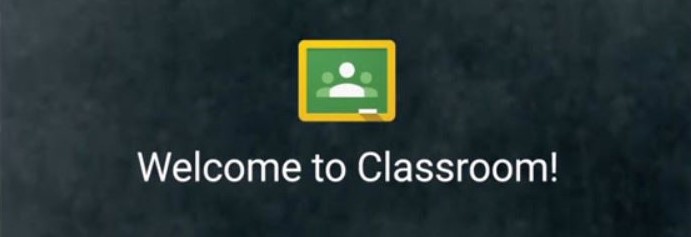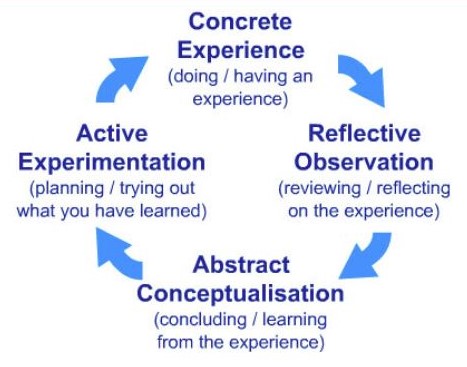
Below is an assignment I posted on Google Classroom for my 9-12 Concert Choir last week:
“Good morning, Folks! For our next concert, each choir will learn a song on their own. The catch is, we will not rehearse the song as a choir. The first time we will sing the song together will be for our next concert. We Got This!“
I wish I could have seen their faces when they read this assignment – priceless!
Distance Learning
I am now three weeks into Distance Learning, and I’m still wrapping my head around the concept of online High School Vocal Music and Music Theory. My first assignment for choir, Choir Karaoke, worked out very well. Through this assignment, the students selected one song from our winter/Spring repertoire, rehearsed the song, recorded their part, and submitted the video/audio recording to Google Classroom.
Listening to their recordings and hearing their voices renewed my commitment (and brought tears to my eyes) to create and present practical assignments for my classes. I always encourage my students to “plunge into learning,” and that is what I am doing.
Professional Reading
While reading the April issue of the Choral Journal, I came across the article entitled, The Horse before the Cart: Redefining the Choral Warm-up. As I read, Brian J. Winnie addresses skill acquisition and the work of Alice Y. Kolb and David A. Kolb and the Experiential Learning Theory (ELT). With a little digging, I found great resources for ELT and decided to incorporate ELT aspects into the Distance Leasing for my students. I am now integrating the ELT process by applying the Experiential Learning Cycle Model into my teaching as I create assignments for my classes.
Experiential Learning Cycle Model

The Experiential Learning Cycle (McLeod, 2013)
As I spent more time reading and studying the Experiential Learning Cycle, it dawned on me that I experienced these same four steps that led me to discover the Experiential Learning Theory.
The Experiential Learning Cycle Model in Action
While reading (Concrete Experience) the April issue of the Choral Journal, I came across the article entitled, The Horse before the Cart: Redefining the Choral Warm-up. As I read (Reflective Observation), Brian J. Winnie address skill acquisition and the work of Alice Y. Kolb and David A. Kolb and the Experiential Learning Theory (ELT). With a little digging, I found great resources for ELT and decided to incorporate (Abstract Conceptualization) ELT aspects into the Distance Leasing for my students. I am now integrating the ELT process by applying (Active Experimentation) the Cycle of Experiential Learning into my teaching as I create assignments for my classes.
Now there are many other factors involved in the ELT earning process such as Learning Styles, Learning Spaces, ELT research, and the relationship between Organizational and Individual Learning, but these are topics for future discussions.
Back to the Choirs’ Assignment: Responsive Learning #2
This week, the students will continue their work on their selected songs by using the Agile Development Instructional Framework (ADIF) alongside the Experiential Learning Theory (ELT). Through ADIF, my students have classroom experience and are accustomed to taking an active role in rehearsal planning, implementation, reflection, and assessment.
My three choirs are working on the following selections:
- Concert Choir – The Seal Lullaby, Eric Whitacre
- Women’s Choir – I See the Light, arr. Mac Huff
- Select Choir – Moon River, arr. Steve Zegree
Sprints – The Agile Development Instructional Framework
Using ADIF for the past few years during classroom instruction, my students know how to work through a selection of music using what we call “Sprints.” A Sprint is a short rehearsal event (Iteration) that can last from three minutes to a class period. A Sprint Group consists of student membership ranging from a full choir, SATB sections, small mixed ensembles, or a Self-Sprint. Each Sprint focuses on one particular skill or concept the students identify as essential to learning and performing a specific song.
The students’ next assignment will be to prepare for their Self-Sprint by creating a Self-Sprint Planning form – somewhat like their lesson plan. They will experience the following:
- Listen to a recording with their music. (Concrete Experience)
- As they listen, annotate areas of concerns, and mark any questions. (Reflective Observation)
- Identify the skills and concepts needed to learn the music. (Abstract Conceptualization)
- Practice their part and assess for future cycles. (Active Experimentation)
Conclusion: Distance Learning and the Experiential Learning Cycle
One of my goals through Distance Learning is to provide opportunities for my choir members to continue to become independent critical thinkers, problem solvers/finders and to think musically on their own at their current skill level. Incorporating the Experiential Learning Theory within the Agile Development Instructional Framework provides flexibility, creativity, and accountability for both the director and the ensemble.
Leading Voices: Students Teaching Students
With many schools in the United States transitioning to, or now utilizing distance learning due to the COVID-19 pandemic, I am reaching out to my colleagues for assistance. My 49 member SATB 9-12 Concert Choir will soon begin online work preparing O Love, by Elaine Hagenberg for our next concert.
There are several rehearsal videos available for independent study. Yet, I am in search of a High School or College Choir that would be interested in collaborating and helping with our project. I want to provide my students with a rehearsal video or MP3 recording of the piano accompaniment with an actual choir section (SATB) singing their parts (not just me singing or playing their parts).
I can create rehearsal tracks, but since this song must be studied and practiced independently at home, I would like their musical experience to be as close to a real choir as possible. These are challenging times – what better use of our students’ time and talents than to have our Students Teaching Students. If interested, please email me at backles@marcellusschools.org.
Leading Voices Next Online Meeting:
Our next online meeting will be held on Monday, April 6, at 7:00 PM Eastern Standard Time, and will last for about a half an hour. The topic, Distance Learning, and the Experiential Learning Cycle. If you are interested, you can email me at brianoackles@gmail.com or use the link below to join the meeting.
https://meet.google.com/bsk-wfrg-dxv?hs=122
References:
“About Experience Based Learning Systems (EBLS), Inc. .” About | Experience Based Learning Systems, LLC (EBLS). Accessed March 26, 2020. https://learningfromexperience.com/about/.
“(PDF) Experiential Learning Theory: A Dynamic, Holistic …” Accessed March 27, 2020. https://www.researchgate.net/publication/267974468_Experiential_Learning_Theory_A_Dynamic_Holistic_Approach_to_Management_Learning_Education_and_Development.


Leave a Reply
You must be logged in to post a comment.